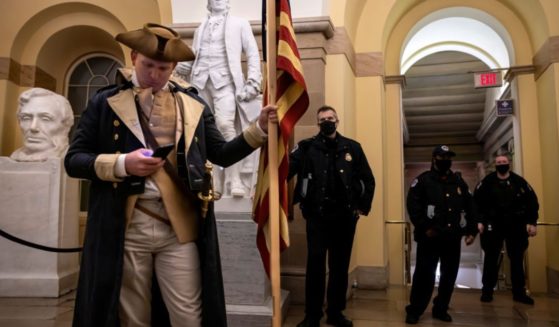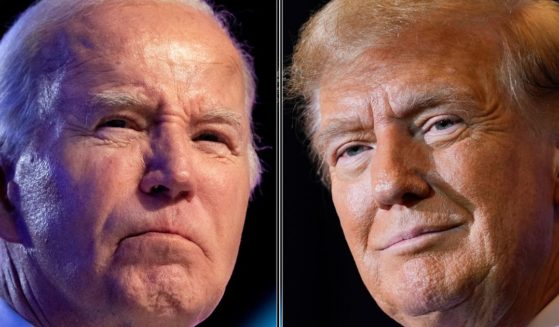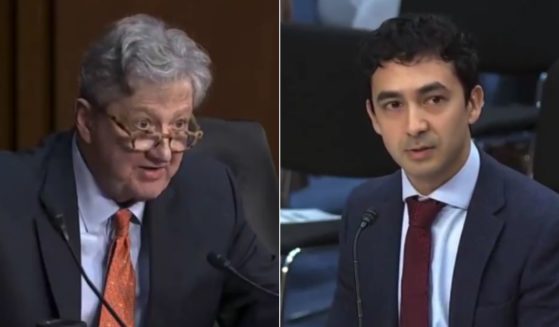The First Time Congress Voted to Impeach a Sitting President
On Feb. 24, 1868, for the first time ever, the U.S. House of Representatives voted to impeach a sitting president.
Ironically, the Southern Democrat whom House Republicans charged with “high crimes and misdemeanors” had remained loyal to the Union during the Civil War.
Andrew Johnson of Tennessee had served as President Abraham Lincoln’s running mate during the 1864 election. After Lincoln’s second inauguration on March 4, 1865, Johnson became vice president.
Six weeks later — on the morning of April 15, 1865 — Lincoln died of a gunshot wound inflicted the previous evening by the pro-Southern assassin John Wilkes Booth. Suddenly, Johnson ascended to the presidency.
Johnson’s impeachment less than three years later had its roots in the same issues that caused the Civil War. Indeed, slavery and secession haunted the nation for many years to come.
The immediate issues that prompted House Republicans to take the unprecedented step of impeaching a president had both constitutional and political elements about them. In the end, the constitutional elements prevailed, resulting in Johnson’s acquittal.
At the core of Johnson’s impeachment lay the complicated question of Reconstruction. How could Americans reunite after four horrific years of bloody conflict?
In fact, Reconstruction involved several interrelated questions. How, when and on what terms could the states of the former Confederacy return to the Union? How and on what terms would four million people transition from slavery to freedom? And who would decide?
That last question — who would decide — brought Johnson into direct conflict with congressional Republicans.
The Republican Party was born in 1854 for the sole purpose of using the federal government to restrict the spread of slavery into the western territories. Lincoln became a Republican for this very reason.
Abolitionists and others with strong anti-slavery sentiments thus gravitated toward the Republican Party. These staunch opponents of slavery and friends to the rights of freedmen became known as “Radical Republicans.”
Democrats, on the other hand, had been content to see slavery spread as long as the people voted for it. Above all, the states themselves must decide.
A self-made man who bragged of his humble origins, Johnson had no great love for slaveholders. But he also had no love for the slaves themselves. Every good Democrat knew that America must remain a white man’s democracy.
Johnson, therefore, wanted to reunite the states immediately and thus restore the Union “as it was,” minus slavery. He had no interest in civil rights for former slaves.
Radical Republicans, on the other hand, believed that the Civil War must result in Lincoln’s “new birth of freedom.” That meant equality for everyone under the law, backed by the power of the federal government.
At first, Johnson held the advantage. The Congress elected in November 1864 did not meet until December 1865. During this period of “Presidential Reconstruction,” former Confederates received leniency. Southern states adopted “Black Codes” that relegated former slaves to permanent second-class citizenship. Johnson approved.
When the new Congress met in December, Radical Republicans went on the offensive. Republican Rep. Thaddeus Stevens of Pennsylvania set the terms of the debate in a fiery Dec. 18, 1865, speech.
“Dead men cannot raise themselves. Dead States cannot restore their existence ‘as it was,'” Stevens thundered. “Congress alone can do it.”
Republicans passed civil rights legislation. Johnson vetoed everything.
Republicans responded by adopting the Fourteenth Amendment, which guaranteed equal protection under the law, and the Fifteenth Amendment, which extended voting rights to all adult male citizens regardless of color. Then, Republicans made ratification of these amendments a condition of readmission to the Union.
Johnson, however, remained a thorn in Republicans’ sides. The president functioned as commander-in-chief and executed the laws. Thus, his attitude toward ongoing Union military occupation of the South mattered a great deal.
Republicans took the first step toward attempting to remove Johnson in March 1867, when they passed the Tenure of Office Act over Johnson’s veto. A year later, this act became the centerpiece of impeachment.
The Tenure of Office Act required Senate approval before the president could remove a Cabinet official. It was meant to keep Secretary of War Edwin M. Stanton in office. A Lincoln appointee, Stanton sided with the Radical Republicans on Reconstruction-related issues.
When Johnson defied the Tenure of Office Act by first suspending and then firing Stanton, Republicans responded with impeachment.
House Republicans brought eleven articles of impeachment in all. Most pertained to the Tenure of Office Act, though the 11th and final article raised much broader concerns.
Introduced by Stevens, the 11th impeachment article accused Johnson of delivering a speech declaring “in substance that the Thirty-Ninth Congress of the United States was not a Congress of the United States authorized by the Constitution to exercise legislative power under the same” and thus “also thereby denying and intending to deny the power of the said Thirty-Ninth Congress to propose amendments to the Constitution of the United States,” etc.
In other words, Johnson had argued publicly that Congress had no right to legislate or to propose constitutional amendments because it did not yet represent all the returning states.
Johnson’s trial in the Senate began on March 5, 1868, and continued through April 20. Chief Justice Salmon P. Chase presided.
Officials printed 1,000 tickets daily for those who wanted to attend the spectacle. Washington, D.C., luminaries gobbled up nearly all of them.
Radical Republicans in the Senate shared their House colleagues’ disdain for Johnson.
The president “is the impersonation of the tyrannical slave power. In him it lives again,” Republican Sen. Charles Sumner of Massachusetts said.
Indeed, Johnson’s “attempt to substitute himself for Congress in the work of reconstruction was sheer usurpation.” And the presidential veto “was turned into a weapon against Congress.”
On May 16, the Senate voted 35-19 to convict Johnson on the 11th impeachment article. This tally fell one vote short of the required two-thirds majority.
Votes on two additional articles occurred 10 days later and produced the same result. Republicans chose not to pursue votes on the remaining eight articles.
Johnson stayed in office for another 10 months but did not seek re-election.
The impeachment of Johnson left a complicated legacy.
On one hand, Radical Republicans had every reason for wanting to rid themselves of the obstructionist president.
Modern scholars largely agree that the Senate reached the right conclusion. Acquittal, they say, preserved the integrity of the presidency.
This conclusion, however, overlooks Johnson’s promiscuous use of the veto power. Sumner and other Republicans had every right to complain about this. Indeed, the Founders never intended that presidents should use the veto for political disagreements — only for clear constitutional violations.
Furthermore, Republicans wanted to remove Johnson for the sake of the former slaves, whose civil rights Johnson opposed.
On the other hand, Republicans used patently unconstitutional means.
For one thing, Congress cannot enlarge its own authority under the Constitution. The Tenure of Office Act purported to do exactly that.
Likewise, the 11th impeachment article, however accurate its description of the president’s sentiments, charged Johnson with making a hostile speech. Surely no public official should ever be removed on such grounds.
Thus, Radical Republicans had the right political arguments but the wrong constitutional approach.
In the impeachment of Andrew Johnson, the constitutional side prevailed.
Truth and Accuracy
We are committed to truth and accuracy in all of our journalism. Read our editorial standards.












